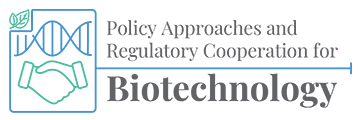Viet Nam’s Expedited Regulatory Approval of Imported Products for Direct Use
Cooperators:
Ministry of Agriculture and Rural Development, Viet Nam
Geography/Region:
Viet Nam
Mechanism of Cooperation:
Collaboration on Risk/Safety Assessments
Category of Cooperation:
Policy
Last Updated:
August 8, 2024
Opportunity for APEC Economies
The policy decision by Viet Nam to expedite the approval of biotechnology products is an example of regulatory cooperation that leverages the experience of other regulatory agencies that have evaluated several biotechnology products. This policy decision, based in trust minimizes unnecessary duplicative safety assessments of products that have been repeatedly evaluated in other economies and deemed safe for consumption, could serve as a model for other APEC economies willing to consider it.
Description
Viet Nam regulates the approval of genetically engineered crops under the Ministry of Agriculture and Rural Development (MARD). Certificates of Food and Feed Approval for genetically engineered crops are issued under MARD’s Circular 2/2014/TT-BNNPTNT. A Food and Feed Safety Committee was established under MARD Circular 2/2014 to advise MARD’s leadership on the issuance and withdrawal of Food and Feed Use Certificates. The committee includes twelve members, from MARD, Ministry of Natural Resources and Environment, Ministry of Health, Ministry of Science and Technology, Ministry of Industry and Trade, and some experts in relevant fields.
The Committee adopted an expedited process to review and approve events under one of the following conditions:
- If the genetically engineered event has been approved for use as food and/or feed in five developed economies (defined as an economy with advanced biotechnology policies in the OECD and/or in the G20).
- If the Food and Feed Safety Committee after a safety assessment concludes that the genetically engineered product does not contain uncontrolled risks to humans and/or the environment.
The first condition mentioned above leverages the knowledge of other economies that have relatively more experience in assessing the products of agricultural biotechnology and have issued several approvals. As of November of 2023, MARD approved 52 biotech events for food and feed use in corn, soybeans, alfalfa, cotton, canola, and sugar beets. This approach marks Viet Nam’s efforts to curb duplicative efforts in assessing the safety of products that have already been assessed and deemed safe in other economies.
